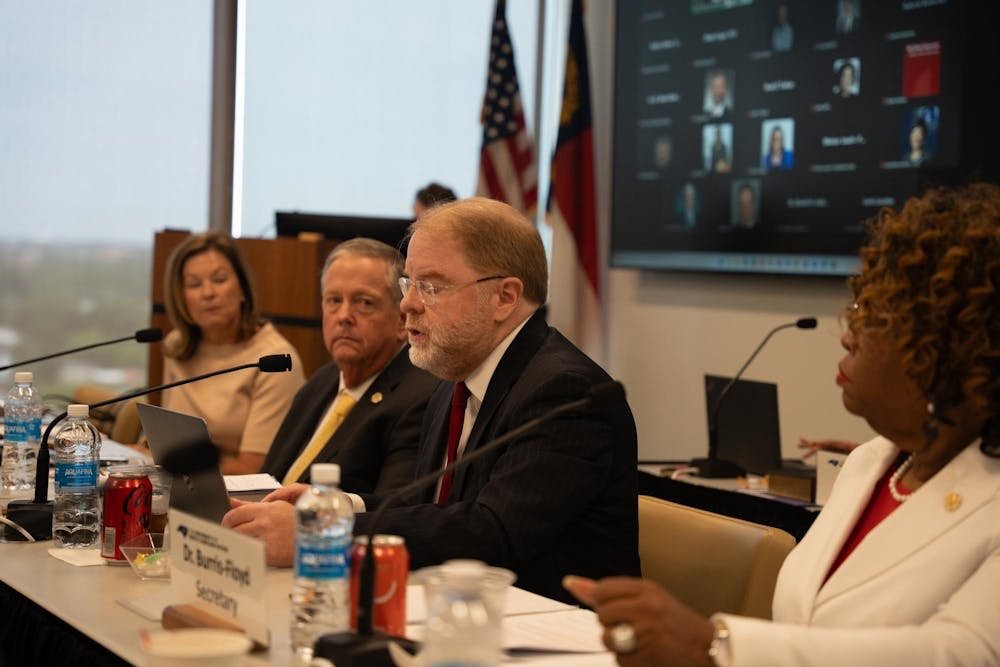Durham, N.C. — August 26, 2025 — It’s been nearly one year since the University of North Carolina System replaced its Diversity, Equity, and Inclusion (DEI) mandates with a new “Equality Within the University of North Carolina” policy. As we approach the second annual compliance certification deadline—September 1, 2025—campus leaders are preparing fresh reports for the Board of Governors laying out how they continue to realign under this new directive.
The Shift to “Equality Policy”: A Bold Reframing
On May 23, 2024, the UNC System Board of Governors repealed Section 300.8.5 of its Policy Manual, dismantling the previous DEI framework and replacing it with an “equality policy” aimed at institutional neutrality, nondiscrimination, academic freedom, and student success . Under the new framework, campus administrations are barred from endorsing political or social views in their official capacities, reaffirming that universities remain forums for debate, not participants in it .
What Happened in Year One: Layoffs, Realignments & Scrutiny
By September 2024, every UNC campus had submitted a report certifying compliance. Many universities dismantled central DEI offices and shifted personnel responsibilities. For instance:
UNC–Chapel Hill eliminated 20 DEI roles, with approximately 55% of the $1.8 million DEI budget redirected toward student success and professional development . UNC Wilmington followed suit, eliminating 16 positions, reassigning staff to services like Student Engagement and Campus Life, and investing $1.45 million in student well-being and recruitment . Systemwide, campuses eliminated dozens of DEI jobs, reassigned 131 others, and repurposed around $16 million toward student‑focused initiatives .
This first round has been characterized by seismic administrative shifts—and a level of skepticism and oversight. The Board’s June 2025 memo criticized initial compliance as merely “an initial effort” and directed each campus to form trustee-led subcommittees to rigorously review these changes and submit renewed certifications by this September 1 deadline . The scrutiny will include briefings on reassigned roles, staff training, webpage and mission statement reviews, and verification that newly reshaped roles truly align with institutional neutrality .
Speech, Content, and Student Organizations: A Delicate Balance
The policy emphasizes that identity-informed student support groups and centers remain permissible so long as they avoid political or ideological advocacy . At UNC Charlotte, for example, three offices—diversity and inclusion, identity and engagement, and academic diversity—were closed, and staff were reassigned to Student Affairs and Academic Affairs. Programming now emphasizes graduation efficiency, mental health, and mentorship for underserved students, aligning with the new neutrality rules .
Similarly, East Carolina University removed DEI-related language from websites, reassigned staff, and aligned their identity centers under student engagement units—all while advising faculty remain free to support student groups in nonpartisan ways .
Pressure from Within: Academic Freedom Meets Oversight
Enforcement is more than procedural—it’s personal. At NC State, a longtime critic of DEI filed a complaint in early 2025 alleging violations of equality policy regarding compelled speech and neutrality. The university swiftly revised its strategic plan and scrubbed DEI language from public materials—though critics argue the shifts were superficial rebranding .
What’s Next—and Why It Matters to Bull City Readers
As we near the second September 1 deadline, UNC campuses are under pressure to substantiate that DEI dismantling wasn’t cosmetic. Subcommittee reviews and trustee questions will likely focus on:
Whether reassigned staff are genuinely shifted toward defined roles in student success and academic neutrality. How well public-facing content and mission statements have been revised to avoid ideological language. Whether identity-based support persists in a neutral, inclusive manner.
For Bull City citizens, this matters. Durham and the Triangle are home to institutions like UNC–Chapel Hill and NCSU—universities shaping regional workforce diversity, academic culture, and local economies. How they’re transforming in real time impacts recruitment, campus climate, and the public discourse around inclusion and academic space.
The Bull City Citizen Commitment
We’re following every step of this evolving story—tracking compliance reports, interviewing student leaders, staff, and trustees, and examining how these policy shifts ripple through our community. Your tips, questions, and voices are essential to ensuring we don’t just report the policy—we capture its impact.
Topic
What’s Happened / Coming Soon
Policy Shift
May 2024: DEI policy repealed; replaced with Equality Policy emphasizing neutrality and nondiscrimination .
Year One Compliance
DEI offices closed; positions eliminated or reassigned; ~$16 million redirected systemwide .
Oversight Intensifies
June 2025: Trustees to review and certify compliance again by Sept. 1; deep dive into reassigned roles and content neutrality .
Student Support & Academic Freedom
Identity-based programs still allowed, provided no ideological messaging; faculty and academic centers still protected .
Local Impact
Policy shifts shape university culture, recruitment, support services, and academic discourse at Triangle campuses.












